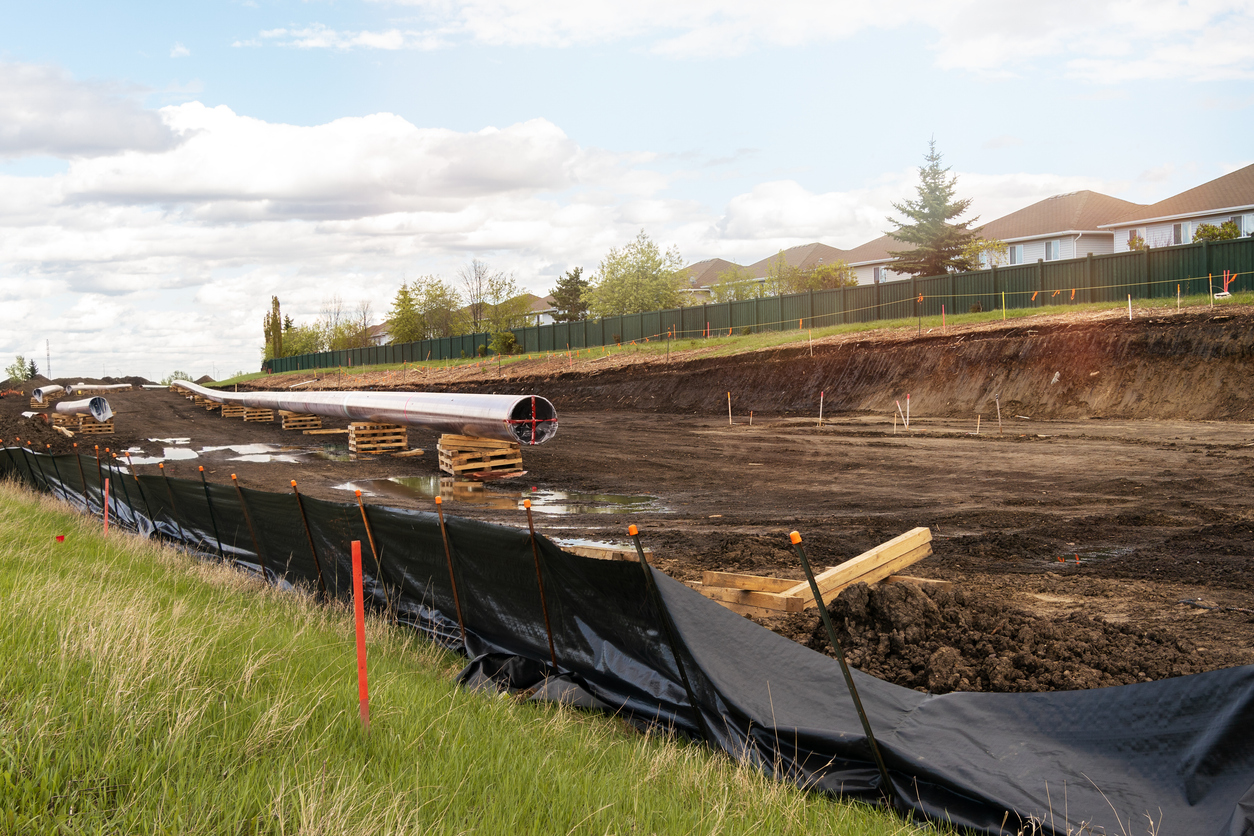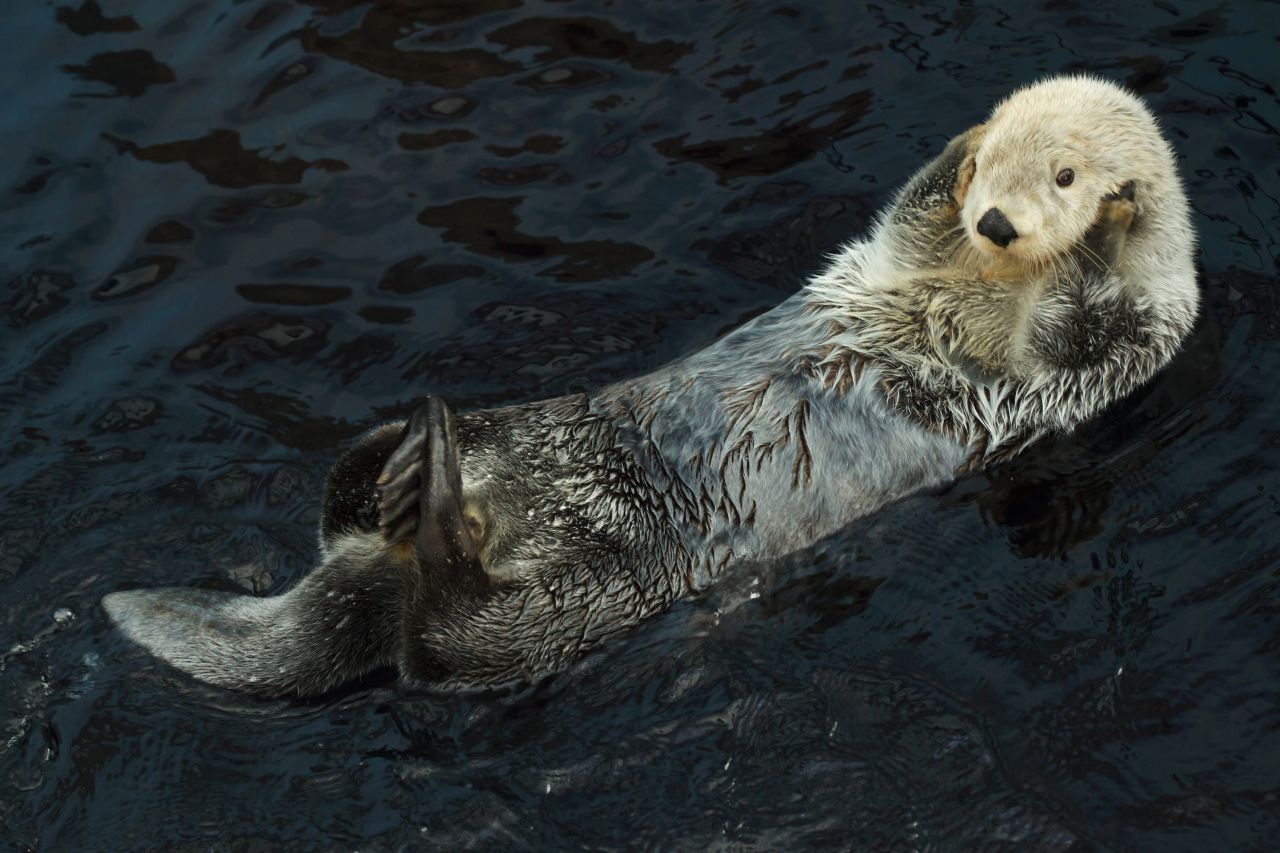Opposition mounts to aging oil & gas pipeline threatening Great Lakes drinking water

The Enbridge Line 5 Pipeline, which conveys oil beneath Lake Michigan and Lake Huron, is notorious for a 2010 accident that was one of the worst inland oil spills in U.S. history. More than 20,000 barrels of heavy crude oil spilled into a tributary of the Kalamazoo River near Marshall, Michigan. The National Transportation Safety Board attributed the cause of the spill to “corrosion fatigue” in the aging pipeline, which was built in 1953.
This messy history weighs heavily on the future of the old pipeline, which is facing stress tests at two critical junctures along its 645-mile length from northern Wisconsin across Michigan to Ontario, Canada.
A dozen miles of the Line 5 Pipeline cross through the Bad River Reservation in northwestern Wisconsin, home to the Bad River Band of the Lake Superior Tribe of Chippewa Indians. In 2013, the easements allowing Enbridge, a Canadian multinational company, to use tribal land expired. The Bad River Band, concerned about the risks associated with the aging pipeline and the history of oil spills throughout the pipeline route, rejected the renewal of Enbridge's easements, declaring that the pipeline must be removed from the Bad River Reservation.
In July 2019, the Bad River Band filed a lawsuit seeking removal of the Line 5 Pipeline, which transports 540,000 barrels of crude oil and natural gas liquids each day. After years of legal back and forth, in June 2023, a federal judge in Wisconsin ruled that Enbridge has three years to reroute Line 5 away from the Bad River Band's territory.
Both Enbridge and the Bad River Band have appealed this decision. The tribe argues that the court's order does not address the immediate threat posed by the pipeline, including imperiling their drinking water, and calls for an immediate shutdown of Line 5.
Enbridge claims that the pipeline is necessary to provide petroleum products to the Upper Midwest. “The products moved on Line 5 fuel Michigan’s cars, trucks and planes. They heat thousands of homes,” the company said on its website.
But outside experts debunk the assertion that the pipeline is even needed. And Line 5’s long history of spills – including in 2010 – is evidence that the pipeline is a threat not only to the local environment, but also to the drinking water supplies for millions of people who depend on Lake Michigan and Lake Huron.
An aging 4.5-mile section of the Line 5 Pipeline crosses beneath the Straits of Mackinac, which connects Lake Michigan and Lake Huron. A substantial spill into the Great Lakes could impact the fresh drinking water for up to 40 million people, including those living in large urban metros like Chicago and Milwaukee.
The inland sections of Line 5 have leaked at least 33 times since 1968, discharging more than 1.1 million gallons of oil, according to a 2020 National Wildlife Federation report.
“Independent monitoring shows the underwater section of Line 5, which transitions from a single 30-inch pipeline inland to two 20-inch pipelines in the open waters of the Great Lakes, is no longer safe in the unique and fragile environment of the Straits,” the federation’s report states.
A 2023 study by an industry consulting firm, PLG Consulting, found there are a variety of replacements for Line 5 that would not lead to energy shortages or increased energy prices.
“Energy markets will adapt - as they have always done and continue to do - in the event that Line 5 is shut down,” the PLG study says. “With advance notice, the markets can be expected to do so without supply shortages or price spikes.”
Since taking office in 2019, both Michigan Gov. Gretchen Whitmer and Attorney General Dana Nessel have opposed the continued operation of Line 5 within the Straits of Mackinac. However, Line 5 continues to operate despite an order by Whitmer to shut down the part of the pipeline running under the straits.
Nessel has sued to decommission the stretch of Line 5 that lies beneath the Straits, calling the pipeline “a ticking time bomb in the heart of the Great Lakes.”
In 2018, the State of Michigan and Enbridge announced an agreement calling for the construction of a utility tunnel beneath the straits to house a new section of Line 5 and permanently shut down the current pipeline segment. This project, called the Great Lakes Tunnel Project, would take a decade to complete. This proposal has received widespread opposition from environmental groups that advocate for the complete shutdown and decommissioning of Line 5.
The Michigan Attorney General’s ongoing efforts to shut down the Enbridge pipeline are caught up in a legal battle in the U.S. Court of Appeals for the Sixth Circuit about whether the case belongs in state or federal jurisdiction.
“This is a Michigan matter that belongs in a Michigan court,” Nessel said in a Dec. 2023 statement. “Enbridge voluntarily litigated this case in state court for over a year before deciding it would prefer a different forum. Now that the Sixth Court has agreed to hear our case, I am hopeful that they will send this case back to state court where it belongs.”
Elizabeth Ward, Wisconsin chapter director of the Sierra Club, said that Enbridge has not properly maintained the Line 5 pipeline, which remains a threat to tribal lands. She said the proposed reroute of the pipeline, which travels adjacent to the reservation, still crosses many of the waterways flowing into the Bad River reservation.
“In addition to the Bad River Band’s water and cultural resources that are at risk because of the existing Line 5 and proposed reroute, other Chippewa Tribes have rights to hunt and fish in the areas that the reroute would cross,” Ward said.
Ward said her coalition against the pipeline believes the U.S. Army Corps of Engineers should be undertaking a full environmental impact statement on the reroute, including an extensive consultation with the impacted tribes. In early March of this year, Indigenous leaders formally requested that the Army Corps intervene. They submitted a petition with over 9,000 signatures calling on the Corps to conduct a robust environmental review of the Line 5 reroute.
In terms of the litigation between Bad River and Enbridge, Ward said she’d like to see the Biden Administration back up the tribe’s position.
“Treaty rights are the supreme rights in the land,” Ward said. “Bad River’s rejection of a lease renewal was in their right and should be immediately enforced.”
In May 2023, the Indigenous Women’s Treaty Alliance submitted a letter to the Biden Administration requesting that he decommission the Line 5 Pipeline due to imminent threats of oil spills impacting the Bad River Watershed and the Great Lakes.
The letter states that a big rainfall event could result in a “guillotine rupture” to the pipeline: a vertical break causing oil to gush from both sides, poisoning the Bad River watershed and Lake Superior.
“Our sovereignty and treaty-protected rights to hunt, fish, and gather food and medicine are all at risk,” the letter states. “An oil disaster would permanently devastate the exceptional ecology of the watershed, the wild rice, and fish populations.”
Christopher Clark, a senior attorney at Earthjustice representing the Bay Mills Indian Community in challenging the Line 5 tunnel project, said Enbridge rakes in up to $2 million every day from unlawfully operating the pipeline.
“They would rather break the law than lower their earnings,” he said. “The federal government should back up the Bad River Band in its case and also conduct a thorough review of Enbridge’s patchwork plans to keep the oil flowing through a dangerous tunnel in Michigan and a risky re-route in Wisconsin.”
In a recent op-ed for Sierra Magazine, Ben Jealous, executive director of the Sierra Club, said it is past time to shut down the dangerous oil and gas pipeline, which has long outlasted its original 50-year lifespan.
“For years, the Bad River Band of Lake Superior Chippewa and other tribes of the Great Lakes region have been leading a true David vs. Goliath fight against the Canadian oil giant Enbridge Energy,” Jealous wrote. “The simple truth is we do not need Line 5.”
Beth Wallace, freshwater campaigns manager for the National Wildlife Federation, said: “the false economic claims, which Enbridge has used to illegally operate Line 5 in both Wisconsin and Michigan, have long been debunked by multiple experts.”
“The current threat of Line 5 is not only the inevitable ecologic and economic disaster from a spill, but also the total destruction of tribal and state sovereignty to protect land and water for all citizens,” she said. “The only challenge to a sensible and safe transition away from Line 5 is political will.”
Lead photo: The Kakagon and Bad River Sloughs located on the Bad River Reservation, which is next to the Enbridge Line 5 Pipeline. Credit: Richard Schultz/Courtesy of 50 Eggs Films















